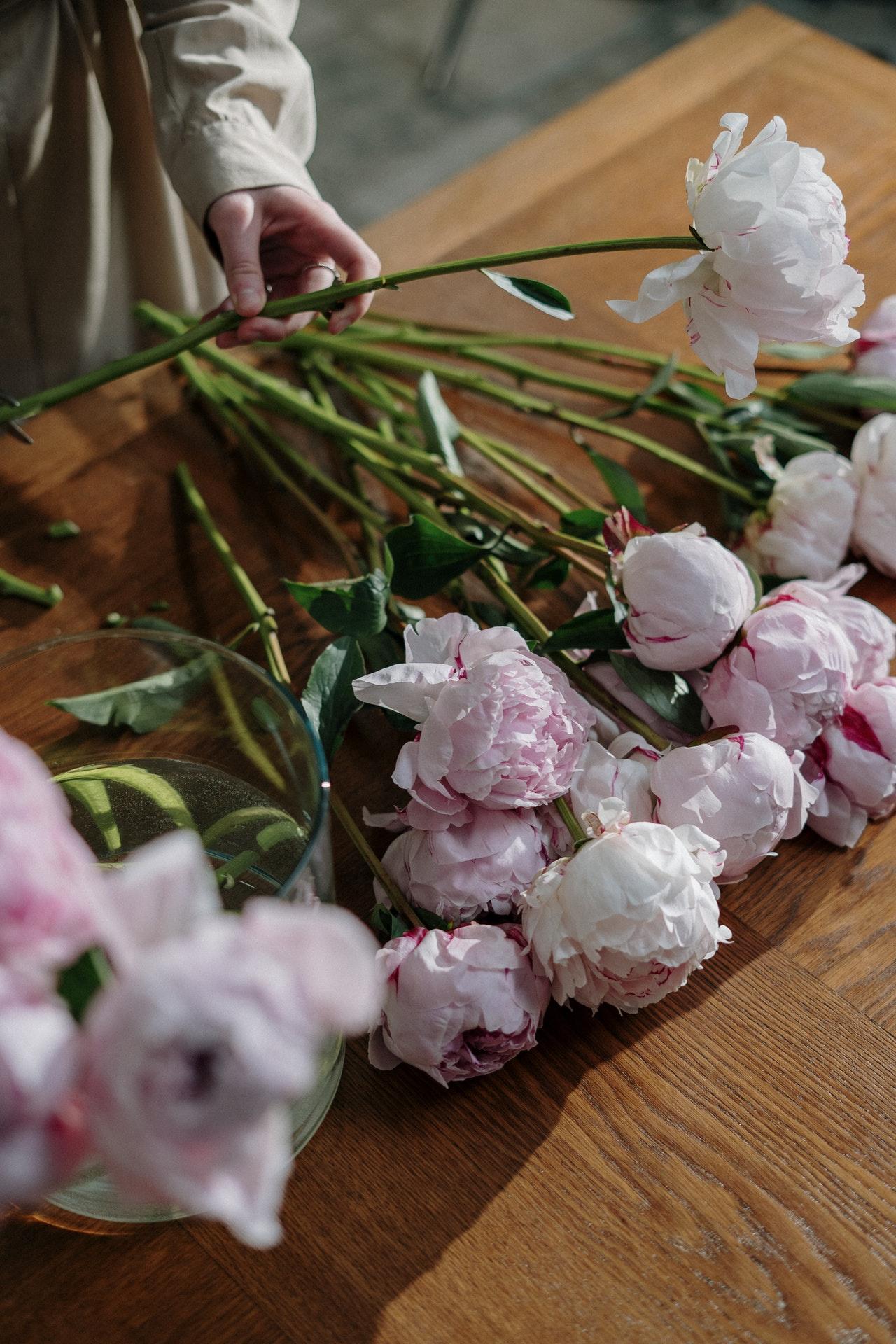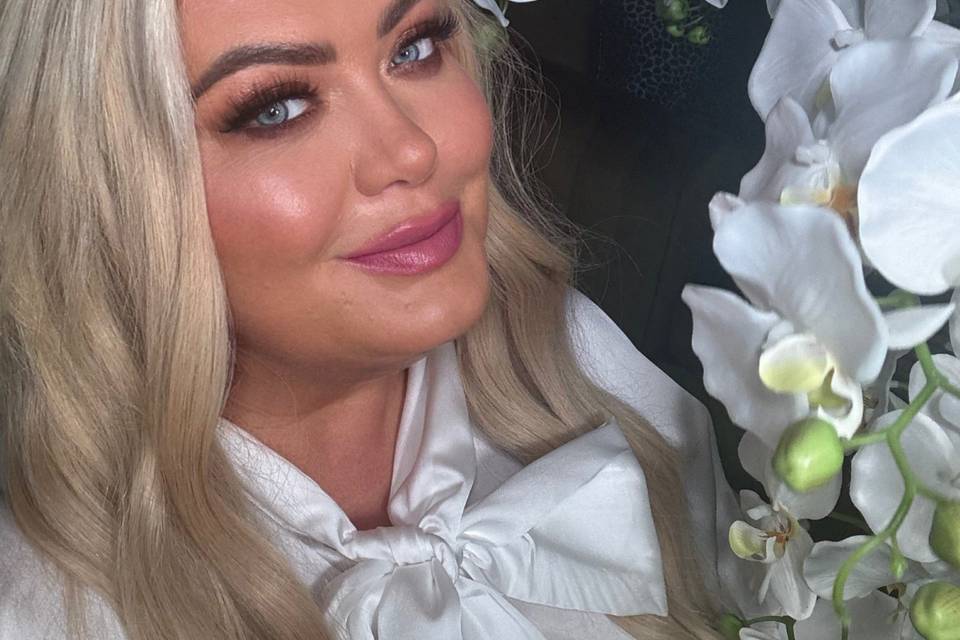How to Prepare Your Wedding Business for Reopening Post-Covid
As COVID-19 lockdown restrictions ease, are you getting your business ready for the restarting of weddings? Here are 10 steps you can take to help you and your clients now
We have included third party products to help you navigate and enjoy life’s biggest moments. Purchases made through links on this page may earn us a commission.


There's still a way to go before weddings can restart in the UK without limitations. However, there are important steps you can take now to get your business ready - both for the full reopening and for the period during which Coronavirus restrictions ease and smaller weddings can go ahead.
The roadmaps out of lockdown for England, Wales, Scotland and Northern Ireland have provided a glimpse of hope that weddings could restart in summer 2021. In the meantime, restrictions are set to be lifted in stages, meaning weddings hopefully going ahead with increasing guest lists.
We’ve come up with 10 things you can do right now to prepare your wedding business, from how to utilise your network to adapting your work practices.
READ MORE
- Coronavirus: The Latest UK Wedding News & Rules Explained
- 8 Things to Do Now That Will Help Your Wedding Business Later
- Wedding Business Support During Coronavirus
1. Know the Facts
Keep checking reputable sources like the Gov.uk Coronavirus page, the dedicated NHS Coronavirus page and the World Health Organisation (WHO), so you're up to date.
Unfortunately, there are still points that remain uncertain about weddings as restrictions ease, such as whether the maximum guest numbers allowed include suppliers. The UK Weddings Taskforce is pushing for greater clarity for the industry.
2. Over-Communicate
Your clients already view you as an expert in all things wedding planning, so expect them to rely on you even more right now. It doesn't matter if you don't currently have all the answers.
“I recently recommended in my Wedding Venue Facebook Group that all venues should be proactively in touch with their couples,” explains International Wedding Venue Consultant and Wedding Sales Trainer Kelly Mortimer.
“Because they felt they didn’t ‘have the answers’ they were scared to take action. This is the worst thing we can do. Our couples need to hear from us. Reach out to all your couples (do a group email and blind copy everyone) and explain what’s the situation today. We don’t know past that. Tell them you’re following guidelines, you’re keeping on top of the new advice as it comes, give them that reassurance that you aren’t burying your head in the sand.”
There is no hard-and-fast rule on how to process the uncertainty, but you have the power to help your couples make the best choice for them. “Be proactive with your couples and offer suggestions to make their lives and the planning process easier for them,” advises Bethel Nathan of Elevate by Bethel.

3. Review Your Policies
We know you'll already have excellent procedures in place to keep your staff safe at work from the last time lockdown was eased. While you have time, however, it's always worth reviewing these to make sure you're following the most up-to-date processes.
Make sure you have a detailed plan for what will happen if you (or a member of your staff) displays Coronavirus symptoms and/or has a positive test, such as putting into place reciprocal agreements with other suppliers in your field to cover weddings if one of you can't attend.
Convey these plans to your couples - and that there's a relevant, clear clause in your contracts.
READ MORE: Wedding Businesses & COVID-19: Best Practices for Your Clients
4. Check Your Supply Chain
“Normal manufacturing lead times from international dress designers is 12–16 weeks, but now we are seeing those timelines grow to 16–25 weeks," says Beth.
Whatever part of the industry you're in, from floristry to cake design, take a look at your normal ordering timelines and update them if you need to so that you can advise your clients. While there aren’t delays for all products, it’s always best to play it safe.

5. Make Sure Your Contract and Insurance Are in Order
Take time to speak with a lawyer who specialises in contract law to make sure your contract is up to date and covers the appropriate cancellation and unforeseeable circumstance clauses. You can work with them to discuss options for how to enforce and handle the situation in the event the contract is breached.
While you do need to protect your interests, the more information you have, the better placed you'll be to help clients.
Kelly advises venues and suppliers alike to be flexible where possible during these trying times: “Consider offering temporary flexibility in your contracts and be vocal about it. For example, any booking made in the next six months would be eligible for one change of date within 12 months. This gives new couples the safety net they need to continue with their bookings.
“These are very strange times, which most of us have not experienced before. Where we can be flexible whether with dates or indeed minimum numbers, please do your best to accommodate these changes.”
READ MORE: Wedding Businesses & COVID-19: 5 Ways to Experiment with Different Wedding Formats
The Association of British Insurers encourages all business to check the extent of their cover with their policy providers: “Only a very small minority of businesses choose to buy any form of cover that includes local closure due to an infectious disease. An even smaller number will have cover enabling them to potentially claim on their insurance for the presence or impact of the Coronavirus pandemic.
“The Government’s clarification will help some of these policyholders claim if the other terms and conditions of the policy are met. We strongly recommend that every business should check with their insurer or broker if they wish to confirm the type of cover that they have purchased.”
6. Make Outdoor Plans
It's currently unclear when wedding receptions will be allowed to go ahead indoors, although the earliest likely date for this is 17th May, so use this time to make sure your business is geared up to operating outdoors. Think about what you'll need to arrange with venues - access to electrical power points outside, for example - as well as what you might need to buy in order to weather-proof any equipment.

7. Utilise Your Network
Remember, you’re not alone in these times of uncertainty and we’re best equipped to deal with whatever comes our way when we support each other. Don’t be afraid to reach out to fellow businesses and suppliers in the industry to swap advice.
“In times of crisis our community comes together as it always has, and I simply encourage pros in every field to talk to their counterparts, share information, and work together as much as you can,” says Andrea.
Not sure where to look? Turn to local connections such as bridal fair organisers, county wedding groups and nearby venues. We’ll be sharing lots of information and advice on our LinkedIn page, plus Facebook and Instagram are also packed with supportive online communities that will happily welcome new members.
Team up with local wedding professionals and help each other out where possible. For example, “if you’re a bridal boutique and are unable to get a certain size, reach out to other boutiques in the area to see if they have it. You can also consider selling a sample size or something off the rack as needed,” suggests Beth Chapman of The White Dress by the Shore.
You can find potential new contacts in your area in our wedding suppliers directory.
8. Plan Your Safety Measures
Similarly, review the measures you'll need to put in place to comply with hygiene and social distancing rules at weddings. That includes checking you have sufficient masks and hand sanitiser for you and your staff.
Shared surfaces like iPads, photo booths or serving utensils also create opportunities for germs and viruses to spread. At an event, consider dedicating someone from your team to be ‘master of the photo booth’ for a touch-free experience, for example, or think about how you'll set up a food or other type of station to limit the number of people touching the same surface.
"Additionally, consider single-use products to eliminate cross-contamination,” suggests Kinsey Roberts of Vista View Events.
9. Bring People Together
If you have weddings booked in the spring or early summer, there is a good chance your couples will have significantly smaller guests list than they'd hoped.
Get creative in finding ways for them to still celebrate with absent loved ones.
“If you can, provide a virtual experience for clients if their guests can’t make it," says DJ Brian B. "For a DJ, maybe create a playlist or live stream mix. Think outside the box for solutions.”
Andrea Eppolito of Andrea Eppolito Events took it one step further when a couple's grandparents were unable to attend their wedding: “To keep them close and to ensure that they got to share in the experience, I invested in 360° virtual cameras (or an iPhone works just fine!) that allowed me to livestream the wedding ceremony, toasts, dances, etc.”
Depending on your type of business, you could also work with couples to create 'wedding boxes', including treats such as favours and a favourite drink, to send to those who can't attend.
10. Make Small Special
Similarly, think about any extra touches you might be able to provide to make a smaller-than-planned wedding feel extra-special for the couple.
Talk to couples about ways to adapt their original plans to suit an intimate wedding. They might be able to have more opulent floral displays, for example, if the flowers are concentrated in a smaller space.
You'll find more ideas in our article on what couples can add to their weddings when they have fewer guests.









